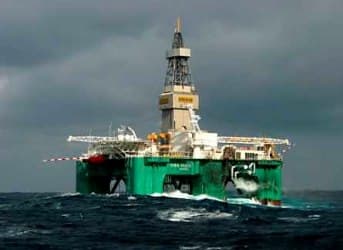The IMF jumps into the climate change debate with a headline-grabbing carbon tax proposal; Dr John Abrahams talks to us about climate change realities; the idea of the self-driving car gains traction; Shell announces $1 billion annual spending plan on Chinese shale; and a sneak preview of this week’s premium offerings…
The International Monetary Fund (IMF) is against government energy subsidies. This certainly shouldn’t come as any surprise for this austerity institution, but its latest report is gaining a decent amount of traction in the media because it’s the first time the IMF has seriously jumped into the climate change theater. It calls for an end to energy subsidies across the board (about $1.9 trillion annually around the world) or for these subsidies to be offset with taxes that could pay for expensive social programs.
Globally, the IMF is calling for an aggressive energy tax that would reflect not only the initial use of fossil fuels, but the damage they cause to the climate. Getting into specifics, the IMF suggests a $1.40 tax on every gallon of gasoline sold in the US, plus other taxes that would mean about $1,400 per year/PER PERSON. The total: $500 billion in taxes annually.
Essentially, the IMF is putting forth the idea of a “sin tax” on fossil fuels to reduce consumption and raise money for other sectors.
“It is time for subsidies to end and carbon taxation to be put in place,” IMF First Deputy Managing Director David Lipton told reporters ahead of the report’s release on Tuesday. “You don’t want overconsumption based on getting something for less than it costs and forcing someone else to pay.”
“Climate change has long-term implications for economic development,” said IMF fiscal chief Carlo Cottarelli told the Washington Post. “But in the short run, you see the impact on public finances. . . . It takes away resources that could be used to reduce deficits and public debt or increase public spending on more useful purposes.”
The World Bank has also jumped on board the climate change wagon, releasing its first related report last year in which it predicted catastrophic consequences for the world as temperatures rise an average of 4 degrees in the coming decades.
With this in mind, you shouldn’t miss our exclusive interview earlier this week with Dr. John Abrahams, who discusses what climate change REALLY means, why we should be concerned and what we can do about it.
At the same time, in line with the Obama administration’s proposed plan to spend $2 billion over the next decade to research alternative energy vehicles, the idea of the “autonomous” or “semi-autonomous” car is gaining ground.
These “self-driving” vehicles aim to prevent or correct driver error to the extent that future cars could be manufactured with much less mass, which in turn would mean burning less gasoline or rendering batteries more effective.
What can we expect before the end of this decade? GM’s (NYSE: GM) Cadillac division plans to unveil a “Super Cruise” feature that will allow drivers to relinquish the wheel on the highway while the car maintains lane alignment and even slows down or stops when other cars are in the way. Volkswagen’s Audi division is working on something similar that would have cars steer and avoid collisions on highways, but at low speeds and focusing on traffic jams. (We’ll cover this in full on Monday).
On the Big Oil front, Royal Dutch Shell Plc (NYSE: RDSA) has announced plans to spend $1 billion annually developing shale gas in China after winning a production-sharing agreement with China National Petroleum Corp. China has an estimated 1,275 trillion cubic feet of technically recoverable shale, but it needs the fracking technology of the Western supermajors to get at it. (So far, Shell and CNPC have drilled 24 wells, with another 14 for this year.)
Finally, if you still haven’t had a chance to check out our premium newsletter, this week trader Dan Dicker adds his golden touch to another energy investment pick and we state our case for reduced skepticism over Sudan/South Sudan investments amid political gains. And, by popular demand, we take you through the potentials and pitfalls of “burning ice” to get natural gas—the methane hydrate “revolution” unfolding (or not).
Try Oil & Energy Insider completely free for 30 days – click here to start your free trial.
Today’s reports are taken from the intelligence section of the premium newsletter and cover some of the most important developing situations energy investors should be aware of. (You will need to start a 30 day free trial to view the reports – you can cancel anytime in the first 30 days.)
James Stafford
Editor, Oilprice.com


















